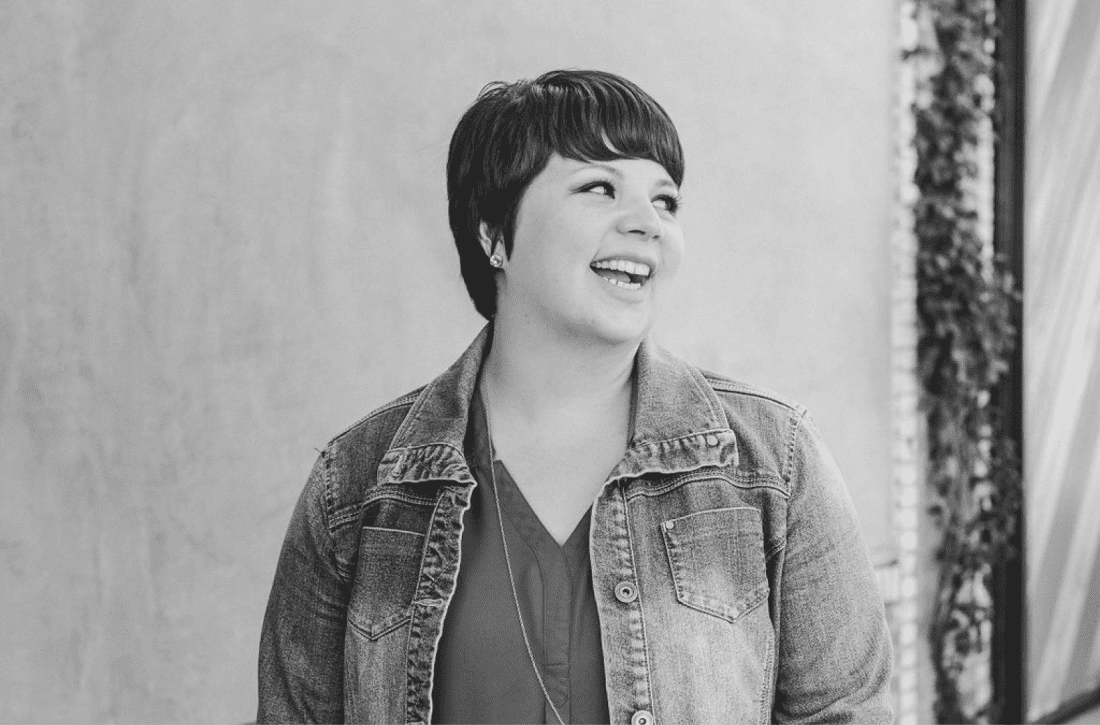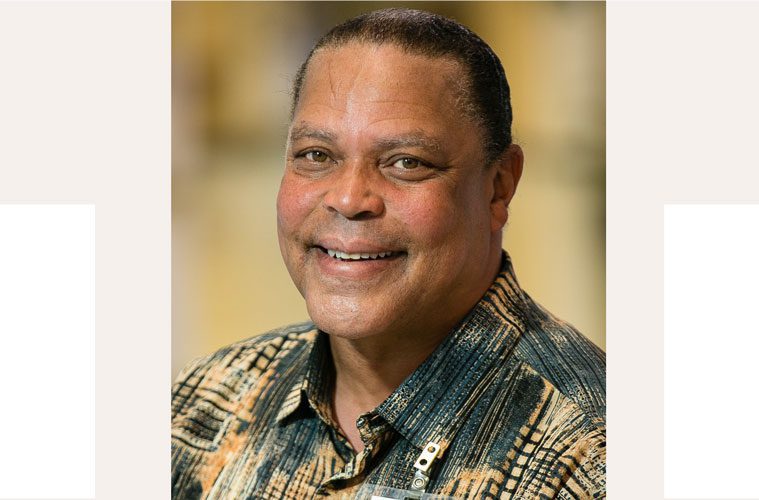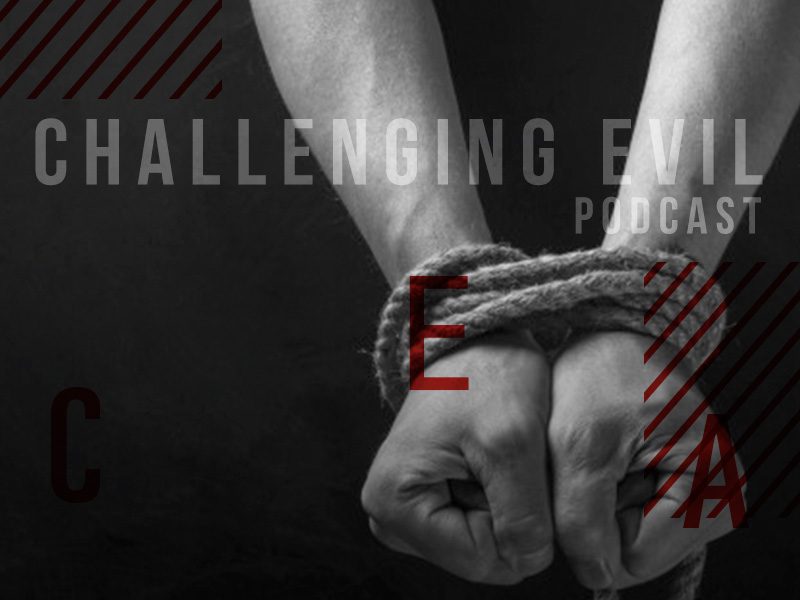Imagine a December spent savoring the true joy and awe of Christmas.
Sounds dreamy, right?
Well, get this: You can.
With your family this season, you can dive deeper into understanding the true wonder, mystery and excitement of God sending his only Son to the world. Make more of the reality of who Jesus is as our source of hope, peace, joy and love. Unwrap the true gift that Christmas brings to each one of us.
And we have the guide for your journey.
Lt. Erin Wikle is a Salvation Army officer (or pastor) currently serving in San Francisco. She’s also a mom to four and a singer/songwriter. In fact, you might remember her from episode 26 of this podcast.
Together with Caring, she has shaped a 28-day Advent Journey for families and we are here invite you in to creating a meaningful season.
To making memories with your family as you set aside time to look forward to Jesus’ arrival with increasing expectation.
But let’s start from the top…what is Advent and why do we recognize it?
Show highlights include:
- Lt. Erin Wikle’s Christmastime favorites.
- Her take on what Advent is and why we recognize it today.
- More about a new family guide to Advent: “The Light Will Come,” which Erin wrote in partnership with Caring Magazine.
- Why Advent can be life-giving instead of a time and energy drain during an already-busy holiday season.
- Erin’s own story with Advent and how it led her to write this guide for families.
- Why she focused the journey on Sabbath.
- Why there is an emphasis on others.
- How the guide is adaptable to families.
- Why this year is a great one to celebrate Advent, even if we’ve never done so before.
- Where Erin recommends someone begin this year for a meaningful family Advent season.
Listen and subscribe to the Do Gooders Podcast now. Below is a transcript of the episode, edited for readability. For more information on the people and ideas in the episode, see the links at the bottom of this post.
* * *
Christin Thieme: Lieutenant Erin, welcome to The Do Gooders Podcast today.
Erin Wikle: Hey, thank you.
Christin Thieme: Thank you for being here. I’m excited to talk to you … Most people won’t know this, but we’ve been working hard on a project that we’re excited to let everybody know about today. So I’m excited to actually talk through it with you here, so thanks for doing this.
Erin Wikle: Absolutely.
Christin Thieme: As we’re getting into the Christmas season, obviously, we all like to celebrate, and I know you have kids and like to celebrate and create memories for them. So, you don’t know I’m going to ask this, but I wanted to start out with a couple, maybe lightning round type questions. I would love to know your favorite Christmas food.
Erin Wikle: Oh my gosh. OK, Christmas food. It’s got to be the Cinnabons. It’s got to be Cinnabon, not just the cinnamon roll, go to the store and go bring home Cinnabon for Sunday morning, for sure.
Christin Thieme: They smell so good.
Erin Wikle: I know. So, bad for you.
Christin Thieme: Yes, but so delicious. OK. Favorite Christmas song?
Erin Wikle: I love “O Come, O Come, Emmanuel.” It’s such a dark foreboding song, but it’s just such a rich, rich, beautiful, beautiful Christmas traditional piece.
Christin Thieme: That is a beautiful one. Favorite Christmas movie?
Erin Wikle: Oh, it’s “A Charlie Brown Christmas.”
Christin Thieme: Aw, cute.
Erin Wikle: Yeah, I know. Again, it’s like a show, more than it is a movie, but it’s so classic.
Christin Thieme: Yes, definitely. OK. Last one, favorite Christmas tradition with your family?
Erin Wikle: Honestly, it’s really reading the Christmas story, Christmas Eve. Because everyone’s super excited. They’re ready for Christmas morning. But I think it’s that calming down and kind of like coming together. Everyone’s happy to do it, so I love that.
Christin Thieme: I love that. So there are so many ways we celebrate and it’s an exciting time of year and a busy time of year. But it’s not, obviously, we all know, not about the food and the songs and the movies. It’s much more than that. And so, I’m excited to talk to you today about the Advent season and why we recognize it. So maybe we can start there. What exactly is Advent? Is it just the excitement of building up to Christmas or is there something more? What is it?
Erin Wikle: Yeah, for sure. I think most probably are familiar with the idea of Advent is just this period of time, four weeks leading up to Christmas. We’re most familiar with that concept. And it’s really just created and designed to help people really look forward to Jesus’ arrival. But, what I thought was cool in preparing this year around was that I learned a lot more about the history. And it is somewhat mysterious, but historians really associate it with really the fixed dating of Christmas, which I thought was interesting. The calendar wasn’t around forever. It kind of came to be. And a lot of historians think that Christmas became associated with December 25th, because it was literally the darkest days of the year.
So there’s this beautiful picture between darkness and yet Jesus coming to really be the light of the world and to bring light into that darkness. So, I mean, there’s cool history that you can read about with Advent starting in the 4th century, and it’s kind of morphed and changed. And while it’s been this long-held tradition in the organized church, it’s really taken on a lot more significance as we’ve seen in the home setting and in the organized church.
So you’re probably familiar with families who really make more of a season by engaging opportunities to really reflect on who Jesus was and who he is and what he came to do. So it’s got this really rich historical significance within the church. But it’s neat to see how it still has a presence today, but it’s really kind of taken on something that’s less ritualistic and dark. But really more about the light of who Jesus is and why he’s come.
Christin Thieme: And as part of that, trying to intentionally recognize that significance and bring that into the home, like you said. You helped us write and we are now launching a family guide to Advent. It’s themed, The Light Will Come. And I’ll just throw out now, anybody can go and sign up for it right now at caringmagazine.org/advent. Like I said, it’s called The Light Will Come. Can you share more about this guide and what it is and what it’s going to be used for?
Erin Wikle: Yeah, definitely. As you mentioned, for the past two years, you’ve kind of launched these Advent resources through Caring. And it’s really just a simple guide to help families better engage the Christmas season to be more intentional about it. But I’m super excited for this year because we’ve really taken to creating something that’s a little bit more robust in terms of content, and is really hitting on this theme of the light coming to break through the darkness.
I think it’s not a surprise that we’ve come through some really, really dark, difficult and hard months. It’s been almost, what, 19 months that we’ve come through a pandemic. And such a remarkable time in history, with even race relations and political tensions. And I just keep reflecting on the fact that if we’re not, now, completely convinced of our need of Jesus, I really don’t know if as a society we ever will be.
So, The Light Will Come, this idea, it kind of was designed to help families engage the truth and the reality of the gospel of Jesus, and acknowledge that Jesus came to bring light to darkness. He did that thousands of years ago, and he’s still doing that today. And so, we’re taking that traditional approach of focusing on the themes of Advent that we all are familiar with, with hope and peace, joy and love. But making an effort to really integrate opportunities for studying Scripture as a family of celebrating these themes each week of doing good, like kind of the practical wing of what we believe. And then, even resting and figuring out how do we do that in the middle of a busy Christmas season.
Christin Thieme: Yes, absolutely. And in a really approachable way, it’s very family-friendly. I just want to pause and call out the obvious that this is an incredibly busy time of year, especially for anybody in The Salvation Army. So, the thought of adding one more thing might sound overwhelming to someone. Why would you say, “No, no, no, this is life-giving instead”?
Erin Wikle: For sure. It’s a really great question. And I think we need to first agree that this isn’t just a seasonal issue. This is like an all-the-time issue, right?
Christin Thieme: That’s true.
Erin Wikle: Society is really, really valued and just coveted like being busy. And I think about when someone often asks, “Oh, how are you doing?” We usually say, “I’m busy.”
Christin Thieme: So busy.
Erin Wikle: We don’t actually say how we’re doing. We say, “Oh, I’m so busy. I’m doing so much.” And it’s become like a coveted thing. And so, I just want to like straight out the gate say, I can’t guarantee that making more of Advent this season won’t require sacrifice. I think anytime we choose to make more of something that’s really good for us, sacrifice is always required. Something has to give.
But I do believe that if we can take a posture to learn and to receive and to actually make room for Jesus, he is always so faithful to give back better than we deserve. I don’t mean that he restores our time, but I think that he supplies for us everything that we need. And I think that it’s so important that we model that to our children, that we show the value of stopping so that we can make room for what matters. So, I’m totally hopeful that engaging in Advent this season is going to give back. It’s not going to be a drain. So yeah. I’m believing for that.
Christin Thieme: Yes. What’s your own experience with Advent? Have you always participated with your family in some way? Or what’s your own experience, your own personal backstory with Advent? How has that led you to now writing this guide for families to follow?
Erin Wikle: Yeah. I grew up in the Church and I grew up, specifically, in The Salvation Army. So, my parents were pastors. And I remember cherishing every Christmas season. I knew how busy it was. I knew how full it was going to be. I knew that we would be running around like crazy people all season long. But I really loved that I knew on Sundays we would get together for worship, and it was really a specific day to focus in. And so, it’s been a part of my upbringing in that way.
But we never did a lot to really engage on an ongoing basis throughout the season. So, this guide I think is an opportunity for families to say, “Hey, it’s not just about Sunday. It’s not even just about looking at Scripture or sitting down and hearing someone else talk about it. It’s really about figuring out, as a family, how can we incorporate this into the day-to-day throughout the entire season.”
And I think that might sound daunting. But I actually think that if we can see it as integrated into our life and it’s not just something we do, but something that we’re living, that’s when we begin to see it have an impact on everyone in the family. So, this guide, I think we wrote it with the intention to say, “Hey, let’s not just be about doing something, but about like living something out the season.”
Christin Thieme: And when you do, do something, let’s focus it on others?
Erin Wikle: Yeah.
Christin Thieme: Why did you decide to write this journey with a focus on Sabbath?
Erin Wikle: Also, a really good question. Because it seems crazy, why would be looking at Sabbath during the middle of a busy season?
Sabbath is, it’s something that I’ve really taken to studying personally over the past several years, because I finally realized I wasn’t good at it. If you look at the Ten Commandments, which are given in Exodus, it specifically said that God said to remember the Sabbath and to keep it holy.
So, it’s literally a commandment that he gives. It’s included with the other commandments. And yet, I think, so many of us think of it as optional, or it’s not for me, it’s for other people. And I think we’re seeing again in society and increasingly like common practice to work harder and to work faster with this idea that the rest will come later.
And that, I just want to say, it’s anti-biblical. That’s anti-Jesus, and it’s not how God commanded that we live. So, in preparing this particular Advent journey, I thought, why not give families an opportunity to understand the origins of rest, right? And to give them a chance to practice it during one of the busiest seasons of the year. Not because we’re gluttons for punishment, but because why not try to see rest as a gift and not as a burden?
And I think so many of us don’t see it as a gift that literally God has given us, he’s commanded that we take. Yeah. And I think that there’s ways, and we talk about it in the guide to really engage that and to practice that during a busy season, but for a reason. So that we come through it, we come to January, and we’re like, “Oh, I don’t feel like I’ve just like lost half my life. I feel like I’m actually living now.” Yeah. That’s the goal. We’ll see if that happens. But that’s the goal.
Christin Thieme: That’s right. To think of rest as a gift. I like that. That’s a good way to think about it. To kind of reframe that…Not to feel guilty about resting, but it’s actually a gift that we’re supposed to be resting, not a burden.
Erin Wikle: Yeah, yeah.
Christin Thieme: Another thing that we focused on in this guide, and a new thing that we included in this one, is this emphasis on doing good. So can you share a little bit more about how that’s incorporated into the journey?
Erin Wikle: Yeah, I think The Salvation Army, it’s a do-good movement. Service is kind of what we do. But the idea here is that we’re not just trying to add to an already full season, but to really help folks make sure they’re engaged in the right things. So I think doing good and engaging in service to others, it can result from either the overflow of our time with the Lord and kind of him kind of filling us to be able to serve others, or it could be something that is just a burden. And so, we’re aiming toward helping people see that. Like, “Oh, I can…I have the capacity to give back during an already busy season in ways that are super meaningful to other people.”
So, we’ve kind of come up with this really cool way to do that as a family, where you’ll have the opportunity to select some options, or to come up with some ideas on your own. But I think it’s twice a week that there’s an opportunity to specifically engage in doing good with all kinds of opportunities. Not just things that are going to take up tons of time or tons of effort, but just different ways that also would reach every person in the family, that works for the little ones, that works for the older kids, that works for mom and dad. And then, of course, it’s going to reach people who are really in need of that this season too.
Christin Thieme: Yeah. And giving little kids a way to engage. If you do have children at home, letting them…Well, the idea is a do good idea jar. So, we have some ideas in there and some cards for you to add your own ideas as well. But actually letting them pull something out and get involved in participating in some way that they can practice that idea of doing good. So, I’m excited for that. I think that’s going to be fun for families to participate in.
As we created this, you really wanted it to be accessible to anyone. So, can you talk a little bit about how it is adaptable?
Erin Wikle: Yeah. So again, it’s just a resource. It’s just a guide and it’s starting place for figuring out how to engage Advent. The last thing we want is for someone to feel like this is just another thing to do. If it’s not life-giving, we don’t want you to do it. I think we even wrote into the study; if this becomes just another thing to do, don’t do it, because then you’re missing out. You’re missing out on the purpose of it.
So, it’s adaptable in that you don’t have to do everything that’s written into the study. If it only works for you to kind of engage in the celebration date, which is really kind of what we launch the theme for the week, and to kind of go through that, then just do that. If you can’t engage in the other study days that have been written in for the week, then don’t do it. If you want to do one do good days, then just do one do good day. So, there’s flexibility within it; it’s not meant to be taxing.
I think the moment you begin to feel like, “Oh, this is too much,” then you probably need to figure out, “Okay, what do I need to draw back on?” So, that this again is producing life in you, and not taking from you. I think that we want to…I think the challenge actually of today is to figure out how do you truth-tell about the gospel in a way that is profound and deep, even to our youngest listeners in our family. But that does not cause confusion or doesn’t disengage them. So, I think you’ll find, going to the study, that there’s deep truth presented here. And there’s getting into Scripture, but that is accessible. And that if it’s not accessible enough, figure out as the parent, how do I make this something that my little ones in the family can really learn from and understand.
So, I think preparation on the parents’ part is important. But you don’t just kind of open it up the day of and say, “Okay, let’s go through this.” But really like, do your part. Let the Lord speak to you. Let Jesus meet you and your preparation so that then you’ve got something rich and beautiful and relative to bring to the whole family on the whole. So yeah. Bottom line is, if it’s not life-giving, don’t do it. But give it a chance. This is written with every learner in mind in the family. So, we really think this is going to be something that can bless and not burden.
Christin Thieme: Absolutely. And I should also note, even if you don’t have small children or you don’t have children at all, it still is a great guide to follow through this season to celebrate Advent.
Erin Wikle: Totally. Yeah.
Christin Thieme: Why do you think this year, out of any of the years, why is this year a great one to focus in and celebrate Advent? If you’ve done Advent your whole life, or if you’ve never really intentionally focused on it, why this year would you say?
Erin Wikle: Yeah. I would say, why not?
Christin Thieme: Yeah.
Erin Wikle: So many of us, I think we’re viewing this as a reset year. And if we’re honest, we’ve all experienced grief and trauma, loss, disappointment, like of every kind over the past almost 20 months. And so many of us were still going through it as a result of just everything we faced from pandemic onward. But I think that it’s highlighted again this reality that we have to cling to Jesus, and the truth of what God did for us when he gave us a gift of his son those thousands of years ago. It was a gift given then, but it’s a gift given now, and who he is, is unchanged.
So, I think if you’re not sure about diving deep this season, I just want to encourage you to do it because I think we all need it. We all need to be able to process what we’ve gone through. But then, look at the reality of who Jesus is. As again, as light breaking through darkness. And each of us holds a very personal darkness right now, I think. Whether it’s lost through COVID, whether it’s dealing with, again, the racial tension that we’ve all faced, or if it’s any kind of other hurt, we all should be able to look at the reality of Jesus coming again as a gift that God’s given to us, knowing that he’s powerful and he has the ability to give us hope, hope for tomorrow. And that’s really important. That’s not trite. That’s not meant to sound cliche, but it’s really true. He’s given us hope for tomorrow.
Christin Thieme: Absolutely. So, The Light Will Come, it’s a 28-day Advent journey for families. It has everything you need in this magazine-like guide. And we are going to mail it to your house for free while supplies last. So, go right now to caringmagazine.org/advent and get your name on the list to get that guide. Lieutenant, thank you so much for writing this guide, for giving us a gift of having a journey to follow this season.
Last question, I just want to know from you, what would be your..We always end the show this way, right? What’s one tangible way right now that we can get involved in whatever this effort is, or in this idea of hope, or whatever it is we’re talking about. So, when it comes to this Advent journey, what’s one tangible—your best piece of advice that somebody can do today, besides getting on the list for the guide, obviously. What’s the first step in setting up your family to celebrate Advent well?
Erin Wikle: I would say, for sure, sign up. You already said that. But look at your calendar now and say, “I’m going to determine to block out some time for rest this season.” I know that sounds crazy, but look at your calendar, figure it out, find how you can actually do it given the demands of whatever you do, and make a plan for it. The guide’s going to help you do that. But we know each other, and I think you’ve got to make a plan for it.
So, start looking at your calendar and don’t just start filling it up with all of the other things that you have to do, but figure out where am I going to find time to cultivate rest into my life this season. And then, get the guide and start walking through it and seeing the gift that God’s actually giving to you in that.
Christin Thieme: Amazing. Thank you so much. I can’t wait to go on the journey with my own family. So, thank you for giving us this gift this year.
Erin Wikle: Yeah, absolutely. You’re welcome. Excited to see how it goes.
Christin Thieme: Yes, for sure. And we hope that you all join us.
Additional resources:
- Get “The Light Will Come: A 28-Day Family Guide to Advent” and unwrap a simple, unhurried approach to the holiday season.
- Know a friend who might want to take the Advent journey with their family? Send them a link to this episode and invitation to join in with you and us this season.
- You’ve probably seen the red kettles and thrift stores, and while we’re rightfully well known for both…The Salvation Army is so much more than red kettles and thrift stores. So who are we? What do we do? Where? Right this way for Salvation Army 101.
Listen and subscribe to the Do Gooders Podcast now.

















